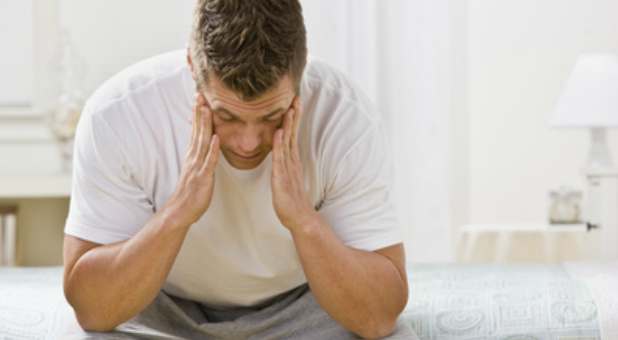 Do you want to sleep well and wake up feeling refreshed? If you follow these 10 easy steps it will be impossible not to sleep. Not only will you sleep well but you will wake up feeling refreshed and ready for the day.
Do you want to sleep well and wake up feeling refreshed? If you follow these 10 easy steps it will be impossible not to sleep. Not only will you sleep well but you will wake up feeling refreshed and ready for the day.
I’m sure you have seen the articles about the importance of sleep. Lack of sleep is associated with gaining weight, an increased risk of diseases such as heart disease and diabetes. Sleep has a number of important functions for the brain and body.
Sleep is kind of like your bodies cleaning time. During sleep, the body heals and removes waste products. Sleep is a universal need for humans and most other animals. We spend a lot of our time sleeping. Average adults need between 7 and 8 hours a day and newborns need 14 to 17 hours a day. The amount of sleep you need increases if you are sick or stressed. If you sleep well it will improve your health, mood, memory, and judgement.
You know you need sleep and you want good sleep, but it just doesn’t happen. Well, there are things we can do that help our physiology to ensure we get proper sleep.
1. Dark
You need a dark room. I mean really dark. Pitch black for the entire time you want to be asleep. Picture our evolutionary history where we lived in caves. Try to get your bedroom as dark as the inside of a cave. You may need to buy block out blinds to stop the sunlight in the morning. This also means no electronic lights. If you have an alarm clock block the light of the numbers. There is nothing that causes worse sleep than counting the hours till you have to get up. If there is light in the room it interferes with the production of melatonin also known as the “sleep hormone”. This is the hormone that helps you sleep but has also been implicated in helping you maintain good mental health.
2. Quiet
You need a really quiet room. Many apartments, especially in cities, are noisy. This is a big one and something you should consider before buying or renting. If you are in a noisy apartment get double glazing or put Styrofoam in your windows. If you have a landlord get them to pay for it. If you have noisy flatmates or neighbours move to a quieter place. Just like light, noise impacts your sleep cycles and can lead to many of the same problems as light, such as cardiovascular disease.
3. No eating
Do not eat for at least two hours before bed and drink water only. This includes no coffee/tea for at least 4 hours before bed. We will talk about drugs and alcohol more later. Eating even three hours before bed is linked to reflux. There have been some links to weight gain which have also been identified. This means you need to eat enough over the day, so you are not hungry at night. Try to eat a filling early dinner. This gives you time to relax and digest your food before you go to sleep.
4. Bedtime routine
Think back to when you were a child and your parents got you to wash your face, brush your teeth and then tucked you into bed with a story. Try to recreate this as an adult. Just like children adults need routines to get themselves ready for sleep. A routine helps trigger your bodies physiology for sleep. If fact it has been found that having routines throughout your day helps to improve sleep quality and quantity. Even changing beds will have a significant effect on your sleep so stay in your own bed if you want a good night’s sleep.
5. Temperature
To get a good sleep you need a room with air temperature around 18C. Fresh cool air is best but can be hard to find depending on where you live. In pre-industrial societies sleep occurred in the coolest part of the night with a rise in outside temperature related to waking. So, you may need to throw on a few extra blankets or stoke the fire if it’s cold at your house. If you live in a hot place, consider turning up the aircon or opening your windows to ensure you can get an optimal sleep temperature.
6. Get up at the same time every morning
Yes, this includes weekends. Keep your alarm set seven days a week. We talked about a bedtime routine. A morning routine is also ensuring you get the best sleep possible. Our circadian rhythms are very important to our general wellbeing and if we wake at different times this can put them out. So, ditch the weekend sleep-ins and you will feel more refreshed and ready for the day.
7. Sleep with someone
Humans have evolved to need close company. We know that loneliness leads to a range of physical and mental health problems and even early death. Feeling lonely can lead to altered or lighter sleep. Friends could actually help you sleep better. When you sleep with someone else it can make you feel safer.
8. Read
Once you get in bed there is nothing better than settling down with a good book. Reading is one of the best ways to reduce stress. Do not use your phone or have it in the room in which you sleep. Research has found screen-time is associated with poor sleep. There are a number of proposed mechanisms for this association including that social media may make your brain less able to switch off and that phones emit a blue light which makes your brain think it is day time. While phones are the focus of this research the same applies to tablets, computers and television screens. So no more e-books at bedtime.
9. Make a list of things you need to remember
This is one of the best ways to decrease your worries. Just having a pen and paper by your bed to write down a list of things you need to do can help you fall asleep faster. Once you have written the list leave those things for tomorrow and get back to reading your book knowing that a good night’s sleep will make it so much easier to accomplish those tasks.
10. Make sleep the most important thing
If your sleep bucket is empty everything else becomes difficult. If you haven’t slept, driving is more dangerous, your problem-solving ability at work will be reduced and you will struggle more in your relationships. Sleep is often thought of as optional. I could just get up earlier or I could do that after the kids are in bed. If for any reason you cannot sleep, try to lay in bed and relax. Just enjoy your bed and letting your body take a load off by laying down. Move sleep back to the top of your needs hierarchy as vital to your health and wellbeing. You’ll be a nicer person for it.
Once you have integrated these 10 points into your sleep routine the goal is to repeat every night for the rest of your life. This may not be possible due to kids and travel but if you do it often enough it will become your bodies set rhythm. If for any reason your sleep is changed if this is your usual pattern it will be easier to fall back into a pattern of good sleep.
As a final point, there are a couple of things you can do during the day to improve your sleep. First, do not take any drugs or alcohol. If you are prescribed medications by a doctor talk to them about the potential implications on your sleep. Many drugs either have an alerting effect which will keep you awake or a sedative effective which leads to drowsiness. The difficulty with sedating drugs is there is often a rebound effect where you feel more unable to sleep once they wear off. Alcohol interferes with sleep in a number of ways. While alcohol does have some sedating effects the type of sleep you get when you drink is not as good. If you do drink realise you will need extra sleep and rest to catch up from the effects of alcohol on your body and brain. Second, exercise every day. We all know exercise is good for the body, but it has also been found to improve your sleep. Even a small amount of physical activity can help you sleep better at night.
Now you know how to get a good night’s sleep. The big question is can you implement these points into your everyday life. If sleep is a problem for you and you feel unable to follow these steps a psychologist can help you with a sleep plan tailored to your life. Wishing you all a good sleep tonight.

